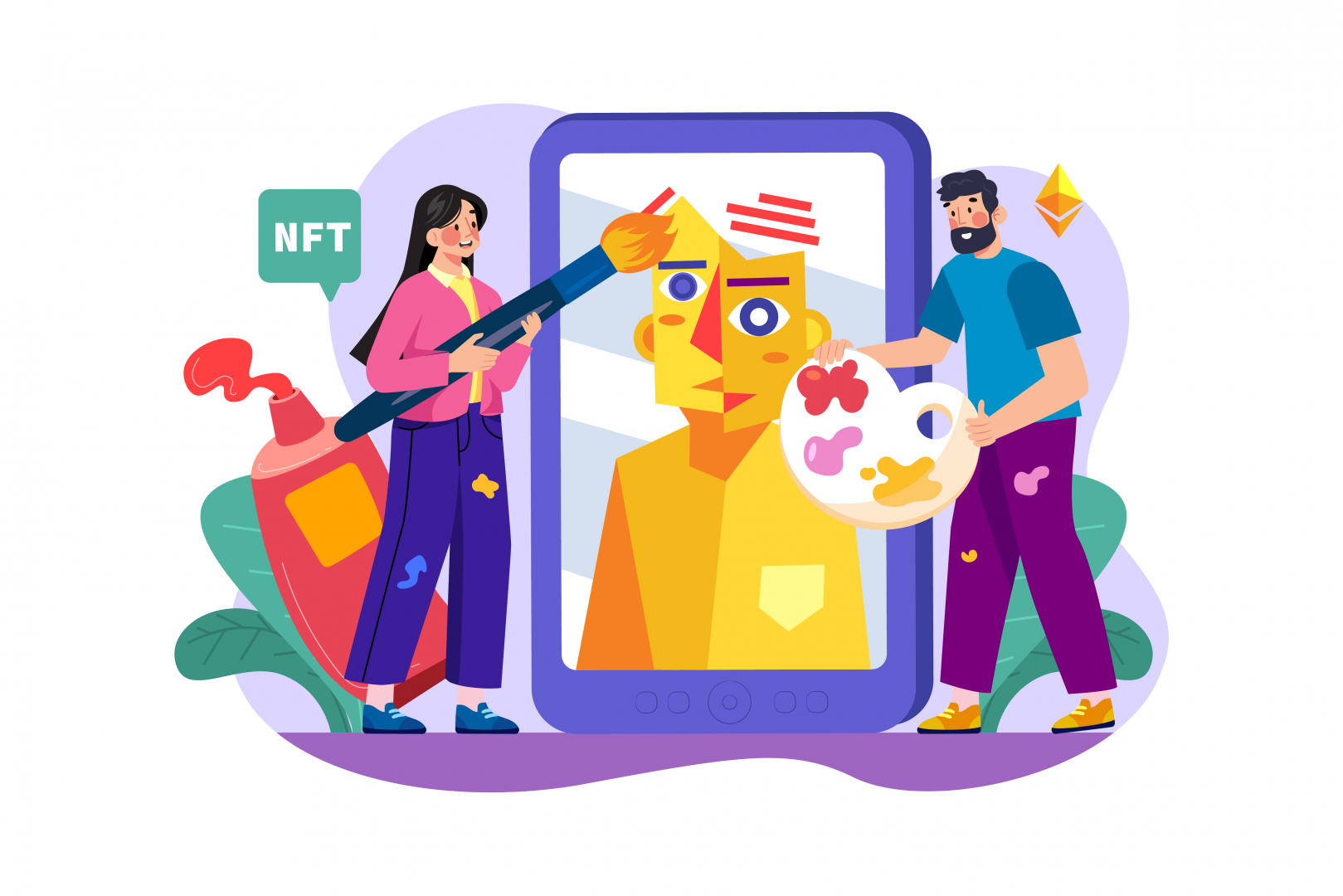Empowering Licensing in the Digital Age: Exploring the Opportunities of NFTs
Feltöltés dátuma:
Non-Fungible Tokens (NFTs) have emerged as a transformative force in the digital landscape, offering new opportunities for content creators and the media industry. NFTs present a unique way to license and monetize digital content, providing enhanced ownership, verifiability, and revenue streams. In this article, we delve into the opportunities NFTs offer for licensing digital content and how they can benefit content creators and the media industry as a whole.
1. Authenticity and Ownership
NFTs bring a level of authenticity and verifiability to digital content licensing. By tokenizing digital assets, such as artwork, music, videos, or written works, creators can establish provable ownership and authenticity through blockchain technology. This helps to combat issues like plagiarism, unauthorized use, and copyright infringement, providing a secure and transparent licensing framework.
2. Direct Monetization for Creators
NFTs enable content creators to directly monetize their digital creations, bypassing traditional intermediaries and gatekeepers. Artists, musicians, writers, and other creators can mint and sell NFTs representing their work, allowing them to retain control over pricing, distribution, and royalties. This direct monetization model fosters a closer relationship between creators and their audience while enabling a more equitable revenue distribution.
3. Royalties and Secondary Sales
One significant opportunity that NFTs bring to content licensing is the ability to earn royalties from secondary sales. Smart contracts embedded within NFTs can automatically enforce royalty agreements, ensuring that creators receive a percentage of the proceeds each time their NFTs are resold. This introduces a new revenue stream for creators, incentivizing ongoing support and value appreciation of their digital content.
4. Enhanced Fan Engagement
NFTs offer a unique opportunity for content creators to engage with their audience and reward loyal fans. Creators can release limited edition or exclusive NFTs that grant special access, exclusive content, or unique experiences to holders. This fosters a sense of community, excitement, and exclusivity around the creator's work, deepening the connection between creators and their fans.
5. New Revenue Streams for Media Companies
NFTs also present opportunities for media companies to explore alternative revenue streams. By licensing and tokenizing exclusive content or intellectual property as NFTs, media companies can tap into the growing demand for unique digital assets. This can include iconic moments from movies, TV shows, or sports events, collectible merchandise, or behind-the-scenes access. NFTs provide a new channel for media companies to engage with their audience and generate additional revenue.
6. Resale Marketplaces and Secondary Markets
The emergence of NFT marketplaces and platforms has created a vibrant resale market for digital content. Creators and media companies can benefit from the resale of their NFTs in secondary markets, earning additional income from the appreciation of their digital assets. This creates a self-sustaining ecosystem where both creators and collectors can participate in the value creation and economic growth of the digital content market.
NFTs have opened up new possibilities for licensing digital content, offering enhanced ownership, verifiability, and revenue streams for content creators and the media industry. Through tokenization, creators can establish authenticity, retain control, and monetize their digital creations directly. NFTs also facilitate fan engagement, secondary sales, and the exploration of new revenue streams for media companies.
As NFT technology continues to evolve, content creators and the media industry must embrace the opportunities it brings while navigating legal and regulatory considerations. By harnessing the power of NFTs, content creators and the media industry can redefine how digital content is licensed, monetized, and consumed, fostering a more inclusive and sustainable ecosystem in the digital age.
Sign up for our newsletter!
Sign up for our newsletter to be the first to know about our latest projects and technological innovations.
Predicting Trends and Demand: The Power of AI in Inventory Forecasting
Inventory management is a critical aspect of any business, influencing costs, customer satisfaction, and overall profitability. Traditionally, inventory forecasting relied on manual methods and historical data analysis, often resulting in inaccuracies and inefficiencies. However, with the advent of Artificial Intelligence (AI) and machine learning, businesses now have powerful tools at their disposal to predict trends and demand with unprecedented accuracy. In this article, we'll explore the transformative power of AI in inventory forecasting and how businesses can leverage these technologies to optimize their supply chain operations.
Navigating Regulatory Compliance and Legal Considerations with Utility NFTs
As utility Non-Fungible Tokens (NFTs) gain traction across various industries, it's crucial for developers, businesses, and users to navigate the legal landscape and ensure compliance with regulatory requirements. While utility NFTs offer innovative solutions for ownership, access control, and digital asset management, they also pose legal challenges related to intellectual property rights, securities regulations, data privacy, and consumer protection. In this article, we'll explore the key legal considerations and regulatory compliance issues associated with utility NFTs and provide guidance on how to navigate them effectively.

















